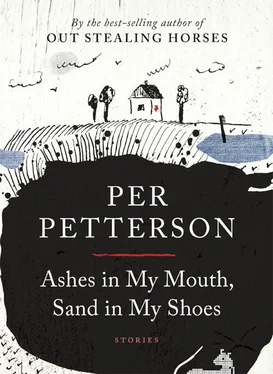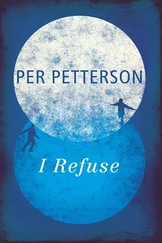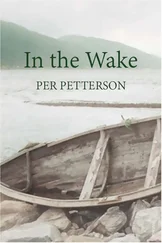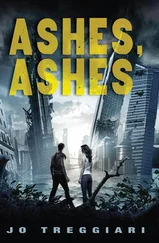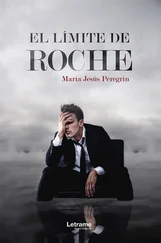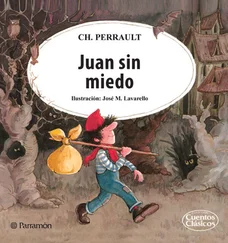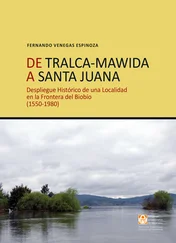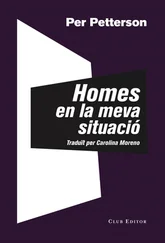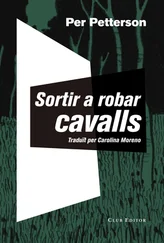‘Comics,’ Jon said. ‘Newspapers.’
‘Comics?’
‘Yes, Donald Duck, Texas, Wild West, Prairie, Arbeiderbladet, Jukan, Morgenposten. When they had a paper collection, they brought it all here to the Barn. My big brother said so, for he saw them.’
‘ Texas comics?’
‘Yes, dammit.’
‘But then we have to get inside before it’s too late!’
‘Sure, but how?’
They looked at the big walls and felt helpless, the solid barn door and the foundations, and then they both saw it at the same time. The Barn didn’t have proper foundations like terraced houses, it was standing on a square of big boulders, and between the rocks there were gaps. How could they have missed them?
They ran round the Barn searching for the biggest gap and when they found it Jon almost threw himself in, he squirmed and kicked and shoved until he was stuck, and Arvid had to pull him out again.
‘It’s no good,’ Jon said, holding his hand to a graze on his cheek. ‘You try.’
Arvid peered into the black hole, and now he wasn’t so keen. Suppose there were someone inside, you couldn’t know that beforehand, suppose she was in there hiding while everyone was searching, and once he thought about her he could almost hear her and he was sure that was how it was: she was inside, in the dark, waiting for him.
But Jon was standing there, looking excited, and he had done his bit, he even had grazes on his cheek, and it was suddenly impossible for Arvid to say he didn’t dare.
He felt a chill inside as he stuck his head in and began to push himself between the rickety stones. It was so dark inside he didn’t know whether his eyes were open or shut, and after deciding he wouldn’t go any further he felt Jon grab his feet and push him all the way in. It was a tight squeeze, the sharp stones scraped against his stomach and one of his jacket buttons came off, and then he was on the ground inside and screamed:
‘Shit, what did you do that for?’ But then he shut up because it was so low under the floorboards above him that his voice bounced back and boomed in his ears and filled up the dark.
‘Because you’re so damned slow,’ Jon said from outside. ‘Do we want the comics or not?’
Arvid groped with his hands like a blind man at the movies, afraid of touching something strange or perhaps someone strange, and wasn’t that breathing he could hear? At any rate something was moving, there was a rustling of paper, and then he felt something brush against his thigh, something soft and living. He gasped for air, the hairs on his neck stood up, he went stiff and straightened up, but instead of hitting his head on the floor above he was suddenly able to stand upright. And then he realised he had his eyes closed, and when he opened them, it was no longer dark.
There was a hole in the floor. He had his head and shoulders up inside the Barn and streams of light came flowing between the wide cladding boards and, when he looked around him, he saw an ocean of newspapers and comics.
He seized the nearest bundle, tore at the string, and it snapped with a twang, and an avalanche of magazines came crashing towards him, sending swirls of dust up into the air. Arvid grabbed as many as he could hold, shrank back down through the floor and crawled fast towards the aperture of light, where Jon was standing unharmed outside, no ice in his stomach and only a graze to his cheek.
‘Wow!’ said Jon as magazines, newspapers and comics suddenly came flying from the crack in the wall, followed by Arvid with a look in his eyes that Jon had never seen in his friend before.
They sifted through them and it turned out that, apart from three copies of Alle Kvinner , four of Aftenposten and six of Reader’s Digest , there were two of Tarzan and five of Texas they had never ever seen. Arvid fingered the spot on his jacket where the button used to be and said:
‘Call me Ali Baba!’ And then he laughed.
Jon wasn’t the sort of boy to keep secrets, and soon the story about Arvid’s exploits was doing the rounds. At the same time the grown-ups had started to talk about the Barn being demolished, and about time too, Dad said, that dump is a danger to life and limb, you keep away from it, Arvid! I will, said Arvid, but out in the streets panic ran like a terrified squirrel between the houses, children exchanged looks and thought, so close to the riches and maybe their newly discovered way into the Barn would be lost and gone for ever!
One evening Jon knocked on the door to ask if Arvid could come out. His big brother wanted to talk to him, Jon said, and Arvid asked his dad if he could. Dad glanced at his watch and said:
‘Have you done your homework?’ even though he knew full well that he had, Arvid always did it the minute he came home from school.
‘Yes, I have,’ he said.
‘OK, half an hour,’ Dad said as he always did. Arvid could have asked at ten o’clock on a Sunday night and his dad would have replied, ‘OK, half an hour.’
Outside it was dark and wet, and although it was not raining, you felt the damp air settle on your skin at once and it was good to breathe. Arvid liked it when it was dark and wet, he felt tucked up in a woollen blanket and hidden away, yet able to walk wherever he wished.
Trond Sand was fifteen years old and waiting by Thomassen’s with a cigarette in his mouth that he smoked, and Arvid could see the glow bobbing up and down like the lanterns at sea when they took the ferry to visit Gran and Granddad in Denmark.
‘Hi, Death Diver,’ Trond said.
‘Hi,’ Arvid said with a slight curl of the lip.
‘I heard you got into the Barn. You’re the only one who made it. Pretty neat, if you ask me.’
‘Ah, it was nothing special.’
‘It was, trust me,’ Trond said, taking a drag from the cigarette, blowing smoke out again and it looked white and ghost-like against the black sky. Trond flicked the butt and it twirled round and landed with a hiss on the shiny, wet tarmac.
‘You know Bandini?’ he said.
Stupid question, Arvid thought, everyone knows Bandini. Bandini was the strangest man in Veitvet, and that was saying a lot, for in Veitvet there was no shortage of strange men. Bandini was Italian and an artist, the only one Arvid had ever seen close up. He had a walking stick and wore a green army jacket and his long hair was tied in a knot on top of his head. Mum thought that was charming. Bandini was also the politest man she knew, and in this block everyone and his brother could learn a little from that, she said, casting a meaningful glance at Dad, who might as well have his Sunday-school fees back, for it had been a complete waste of money.
On the lawn outside his house Bandini had placed a car engine painted blue, and when there were enough people in the street he would go out and pat the engine and say, this, my friends, is great art. But Dad said it was a Ford Anglia engine, and it was not great art at all, it was a load of crap. He said that because he once had an Anglia himself, but when he started working at Jordan he couldn’t afford a new car after the Anglia packed up.
Most of the time Bandini sat in his flat painting naked ladies. At the kiosk he was Knoff’s biggest customer for Cocktail , for it was not easy to get live models in Norway, Dad said, who liked Bandini well enough, for he had also been to THE WAR, in Italy, but had fled because a man called Mussolini wanted to cut off his head.
‘Of course I know Bandini,’ Arvid said.
‘He’s moving back to Italy,’ Trond said. ‘He can’t manage the hills up to Trondhjemsveien any longer, and Mussolini croaked fifteen years ago, so there’s no problem going back.’
Trond lit another cigarette and went on:
Читать дальше
